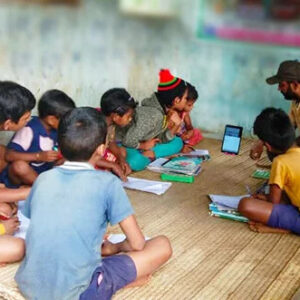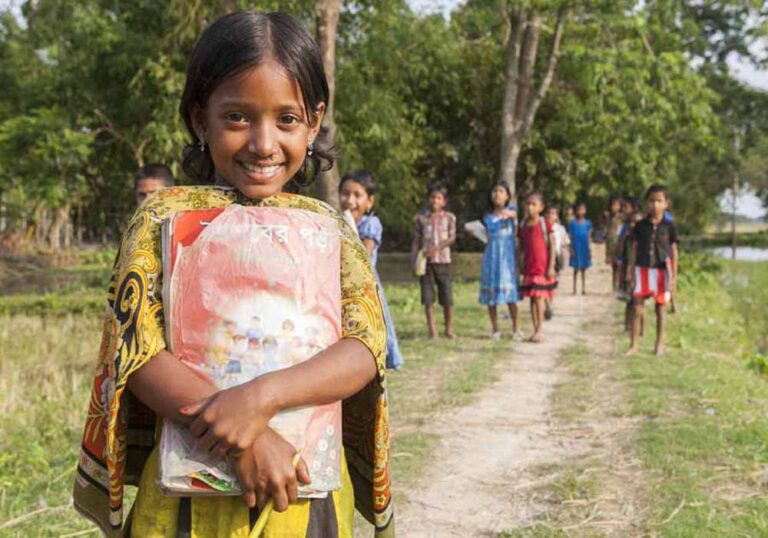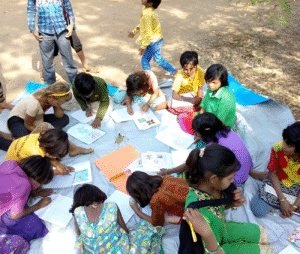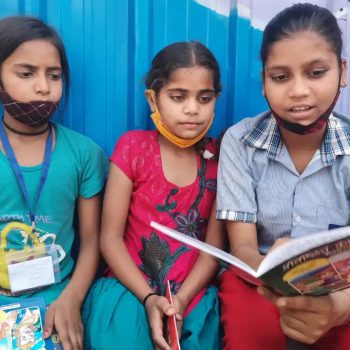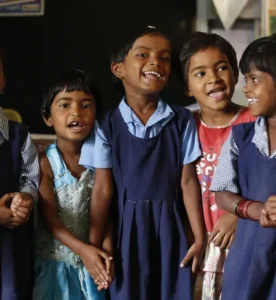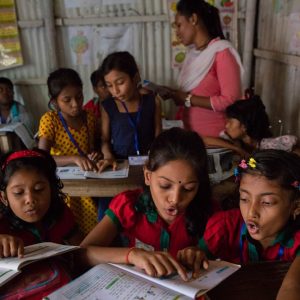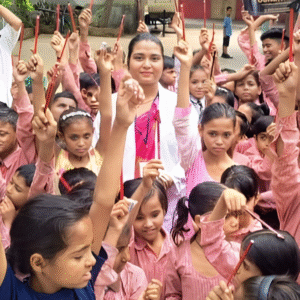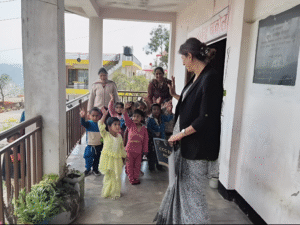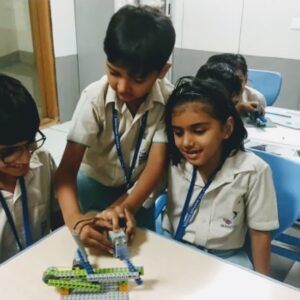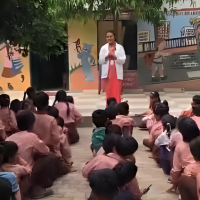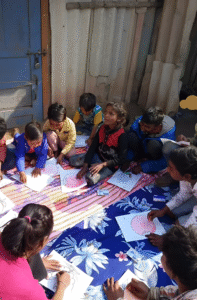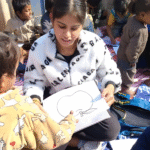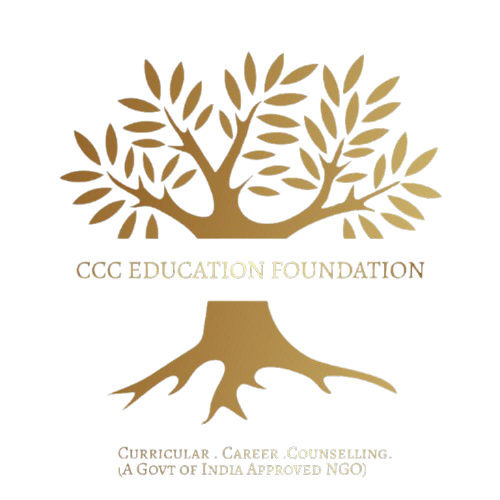
Objectives
Increasing educational access and provision of resources to non-governmental organizations Education (NGO Education) in India is an imperative that has far-reaching implications to the socio-economic future of the nation. With its populous nature and different levels of education, NGO Education are well-positioned to overcome gaps in access to quality education. Through innovation in pedagogy, community involvement, and technology integration, these NGO Education can develop customized programs that respond to the specific needs of various regions. This is not only empowering the local communities but also instills a spirit of lifelong learning, which is critical for long-term development.
It is necessary for NGO Education to work together with the government, schools, and private sector players to enhance education and access. These collaborations can help in sharing resources, knowledge, and practices of best nature, eventually giving rise to more developed educational programs. For example, collaborations can lead to creating training programs for teachers, setting up learning centers in remote communities, and awarding scholarships to disadvantaged students. By building on the strengths of diverse stakeholders, NGO Education can increase their impact and extend it to a larger group of people, so that education is not limited by socio-economic status.
In addition, monitoring and evaluation of the effectiveness of educational programs are important in order to ensure ongoing improvement and accountability. NGO Education ought to have robust monitoring and evaluation systems to gauge the impact of their programs. This evidence-based methodology will not only assist in the identification of effective strategies but also in the identification of areas that need special consideration. By making these findings available to the broader sector, NGO Education can add to a shared knowledge base of what works in education and impact policy-making decisions as well as encourage other organizations to follow suit. Finally, the aim is to develop a more level playing field for education in India, so that all individuals can grow and make their contribution to society.
NGO Bridging the Education Gap in India
Non-governmental organizations Education (NGO Education) are an indispensable part of addressing the educational inequalities in India, with millions of children still not having access to good education. They are continuously working towards narrowing down the divide between the privileged and underprivileged populations. They adopt several programs that are undertaken to improve literacy levels, disseminate resources, and develop awareness about the significance of education. By targeting marginalized communities, NGO Education work towards ensuring that every child, irrespective of their background, gets an opportunity to learn and develop in a nurturing environment.
One of the major tactics adopted by such NGO Education is the setting up of learning centers in rural and underprivileged urban areas. These learning centers tend to act as safe havens for children, providing not just academic assistance but also extracurricular activities aimed at overall development. Numerous NGO Education also offer scholarships and economic support to families to ease the financial burden of education. They also tend to partner with local authorities and schools to improve the quality of education, in that the teachers receive proper training and sufficient resources to enable effective learning.
Furthermore, NGO Education in India are increasingly making use of technology in order to reach more people and enhance their delivery of education. They are able to provide learning materials and resources to students who cannot access classrooms through mobile apps and websites. The method not only contributes to surmounting geographical challenges but also makes learning more interactive and contemporary for students. Through the utilization of the energies of technology, these organizations are progressing dramatically towards changing the educational scenario of India, eventually leading to a more equal society where all children are able to live and excel.
Top NGO Education Programs for Poor Children
Non-governmental organizations (NGO) are important in offering opportunities for education for disadvantaged children across the globe. NGO Education tend to fill in gaps in government resources, providing initiatives that aim at enhancing access to quality education. Most NGO have initiatives that involve establishing schools in hard-to-reach communities, offering scholarships to poor families, and providing basic learning materials. By targeting the obstacles that keep children from being educated, these organizations empower youth and destroy cycles of poverty.
One example of a well-known NGO committed to education is Room to Read, which targets literacy and girls’ and boys’ equal access to education. Room to Read operates in a number of nations, donating resources like books and trained teachers to improve reading among kids. Furthermore, Room to Read also focuses on ensuring the retention of girls in schools by providing mentorship and support to enable them to continue their studies uninterrupted. Their holistic program not only enhances literacy levels but also builds a sense of camaraderie and encouragement among students and their families.
Save the Children is yet another influential NGO Education that runs multiple learning initiatives to benefit children in distress. Their work typically involves emergency education interventions during crisis phases, such that the children caught in conflict or natural disasters can still pursue their education. Save the Children also deals with early childhood education, acknowledging that a good foundation is critical for lifelong knowledge acquisition. By providing training for teachers and creating safe learning environments, this organization helps to ensure that even the most vulnerable children have the opportunity to succeed academically and develop essential life skills.
NGO Education in India: Opportunities and Challenges
Non-governmental organizations (NGO) are important in offering opportunities for education for disadvantaged children across the globe. NGO Education tend to fill in gaps in government resources, providing initiatives that aim at enhancing access to quality education. Most NGO have initiatives that involve establishing schools in hard-to-reach communities, offering scholarships to poor families, and providing basic learning materials. By targeting the obstacles that keep children from being educated, these organizations empower youth and destroy cycles of poverty. One example of a well-known NGO committed to education is Room to Read, which targets literacy and girls’ and boys’ equal access to education. Room to Read operates in a number of nations, donating resources like books and trained teachers to improve reading among kids. Furthermore, Room to Read also focuses on ensuring the retention of girls in schools by providing mentorship and support to enable them to continue their studies uninterrupted. Their holistic program not only enhances literacy levels but also builds a sense of camaraderie and encouragement among students and their families. Save the Children is yet another influential NGO that runs multiple learning initiatives to benefit children in distress. Their work typically involves emergency education interventions during crisis phases, such that the children caught in conflict or natural disasters can still pursue their education. Save the Children also deals with early childhood education, acknowledging that a good foundation is critical for lifelong knowledge acquisition. By providing training for teachers and creating safe learning environments, this organization helps to ensure that even the most vulnerable children have the opportunity to succeed academically and develop essential life skills.
Improving Education Standards and Access Across India
At CCC EDUCATION FOUNDATION, We are committed to transforming the educational landscape of India. Our mission is to ensure that every child, regardless of their background, has access to quality education, empowering them to build brighter futures. We work towards improving education standards, increasing access to education, and addressing the gaps that hinder academic success in our country.
Through innovative programs, partnerships, and community-driven initiatives, we strive to create an equitable and inclusive education system for all students. We believe that quality education is a fundamental right, and we are dedicated to breaking down the barriers that prevent students from accessing it.
Improving Education Standards
Improving the quality of education is at the heart of our work. We aim to raise educational standards across the country, focusing on building a robust and effective education system.
- Teacher Training & Capacity Building
- Curriculum Enhancement
- Infrastructure Improvement
- Digital Education
Increasing Access to Education
Access to education remains one of the most significant challenges in India, particularly in rural, remote, and economically disadvantaged areas. We are dedicated to bridging these gaps.
- Scholarships & Financial Support
- School Enrolment Campaigns
- Inclusive Education
- Community Engagement
Promoting Awareness about Education
Awareness is a key factor in driving change. We work to educate communities about the importance of education and how it impacts long-term social and economic outcomes.
- Awareness Campaigns
- Parental Engagement
Addressing Specific Needs of Marginalized Groups
Education for Children with Disabilities: We support inclusive education by establishing schools or programs specifically designed for children with disabilities, or by working with mainstream schools to provide support and accommodations for disabled students.
Specialized Programs for Scheduled Castes (SC), Scheduled Tribes (ST), and Other Marginalized Groups: we have programs tailored to the needs of children from marginalized communities, including those from lower castes, indigenous groups, and religious minorities, who often face systemic barriers to education.
Career Opportunities
To empower students with real-world experience, skills, and guidance to help them succeed in their careers and contribute positively to society.
Our Programs
- Internship Opportunities
- Career Development Workshops
- Mentorship and Career Guidance
- Job Readiness Programs
- Collaboration with Educational Institutions
- Collaboration with industries
By providing internships, career-related activities, and guidance, CCC EDUCATION FOUNDATION empowers students to successfully transition from education to employment. Through these programs, we help build a future where students are not only educated but also prepared to succeed in the ever-changing professional world.
WhatsApp us

